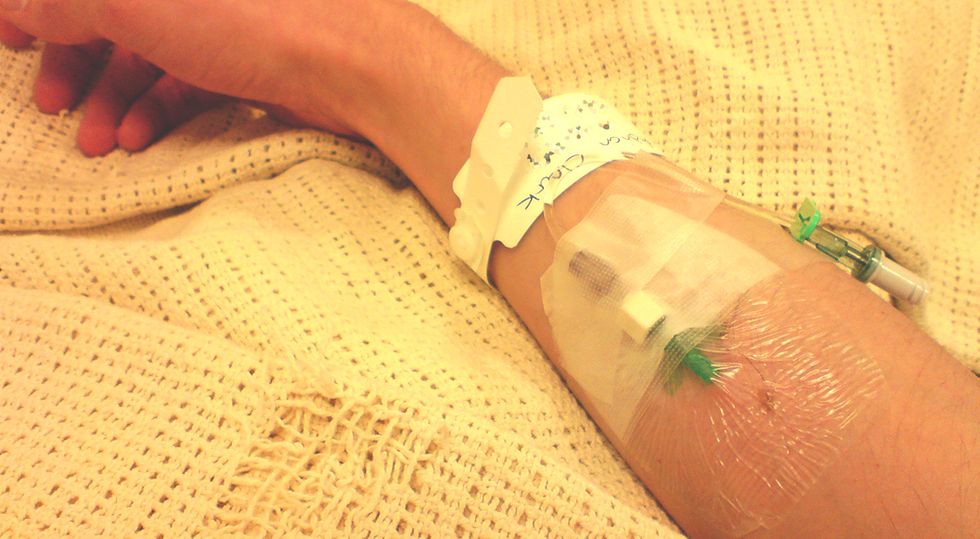Two pills of Prednisone (steroids to reduce inflammation), an injection of Lovenox (to prevent blood clots), two Tylenol capsules (painkillers), one pill of Omeprazole (to reduce stomach ulcers), one pill of Acyclovir (antiviral), an injection of Zarxio (substance to boost white blood cell counts) … the list goes on.
Since my diagnosis six weeks ago, I’ve received over thirty prescription pills, along with other ones to take as needed. I have to self-administer three injections every single day.
After the diagnosis of cancer, you have to adjust to a lower standard of health. Your previous daily activities will probably be too much to handle in one day, and you might want to spread them out.
Avoiding public crowded places such as malls, football games, concerts, etc. to lessen the chance of acquiring an infection is another thing to go by. You probably should avoid any raw meats, vegetables and fruits exposed to air for long periods of time, and that basically eliminates sandwich and salad places, smoothies, sushi, smoked salmon, meat that isn’t well done, and more.
Your life will definitely take a turn, and many of the activities you did before probably wouldn’t be the best for your health, and that’s ok.
On the other side, however, you get to be excused from performing almost all chores; taking out the trash, cleaning, laundry, you name it. It may be partly because you have cancer, but it’s also because you should be exposed to a minimal amount of bacteria and germs.
You even get excused for sleeping in now! You’ll be sleeping a lot more, and that isn’t bad either (a dream come true, literally).
Your social life is also impacted. Being “immuno-compromised” will have you cancel appointments, dinners, and social events last minute. As lousy as that may seem, you now have a legitimate excuse no one can question, even if you are up to go out, but trying to avoid certain people.
If you have an assignment due at midnight and you’ve only started at 10 PM the very same day, your professors might also excuse you! (If my professors are reading this, I promise all my assignment extensions were for very legitimate reasons.)
If you’re currently going through chemotherapy, those days with the addition of a few days after are the hardest. Take medication pre-chemo to avoid most of the common side effects: nausea, digestion problems, headaches, and bone pain. Trust me, it saves you a great deal of pain and sleepless nights. A lot of the medication can affect your normal course of sleep too, so make sure to have Melatonin or similar at all times.
While none of us chose to be battling a life-threatening disease, it does come with extra accommodations that could make you a lot more comfortable. It is overwhelming most of the time, and it feels like you just can’t wrap your head around the fact, but just take it day by day. You might wake up one day feeling like you can’t move but wake up the next morning at 6 AM (by choice) feeling the best you’ve ever felt, or vice versa too.
I don’t write this to put anyone battling cancer, caregiver, family, or friend of a cancer patient down, but to let you know what to expect. It isn’t easy, it never is. It gets bearable, however, if you know what you’re up against.
Every day is a mental, physical, and emotional fight on its own to resume “normal” life. With the support of family, friends, proper medication, and most importantly, better self-care, it is possible to be cancer-free, no matter how early or late your diagnosis is.
What keeps me going is the thought of one day having my doctor declare me cancer-free. It is a dream within your reach, and someday, a reality and a beautiful memory.



 StableDiffusion
StableDiffusion
 full parking
StableDiffusion
full parking
StableDiffusion


 Photo by
Photo by 
 Photo by
Photo by  Photo by
Photo by 









